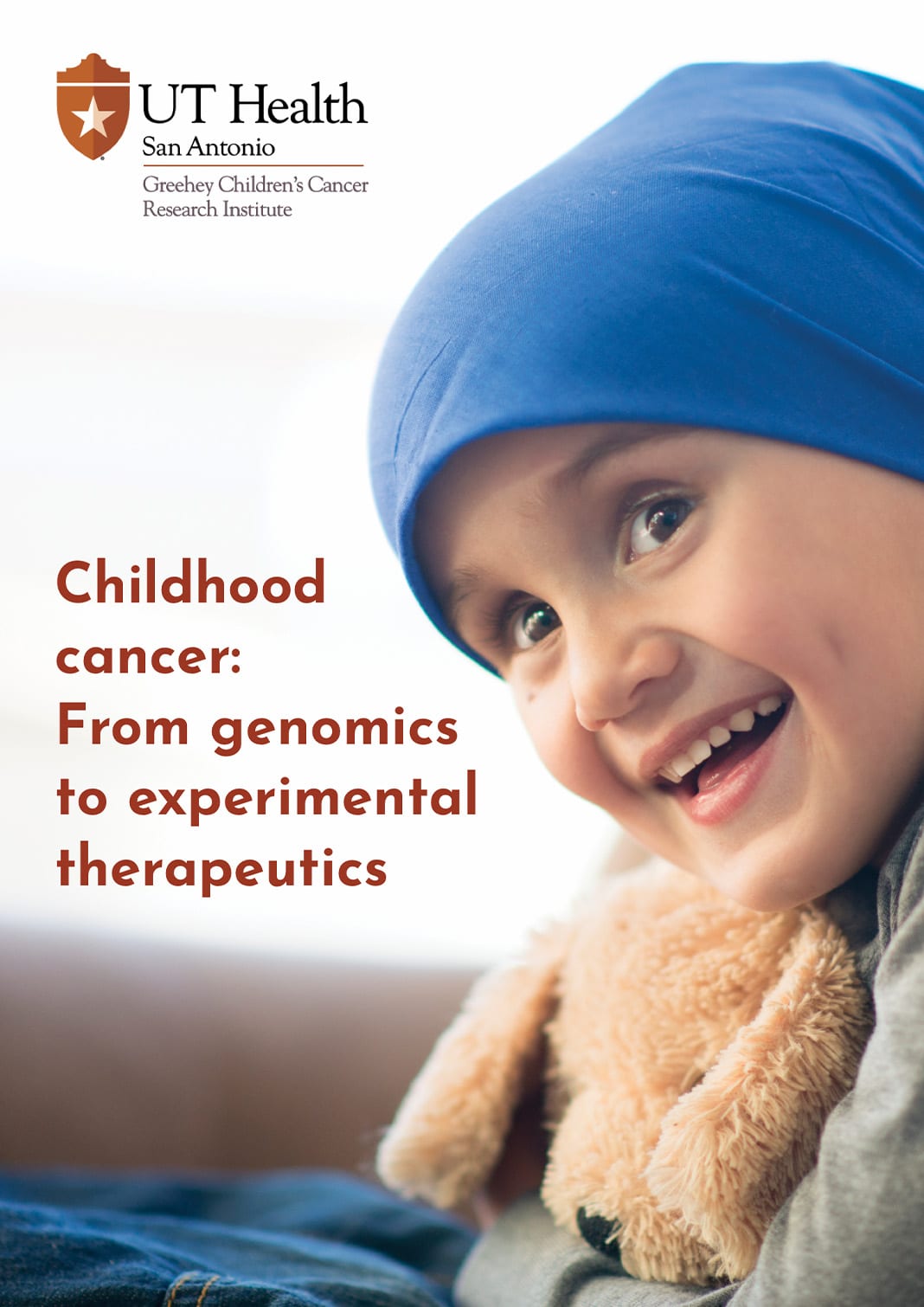With the objective of advancing scientific knowledge and ensuring such knowledge translates to therapies, UT Health San Antonio aim to take on childhood cancer.
This ebook details the mission of the UT Health San Antonio, Greehey Children’s Cancer Research Institute (Greehey CCRI), and how they aim to advance scientific knowledge relevant to childhood cancer, contribute to the understanding of its causes, and accelerate the translation of knowledge into novel therapies.
Translating today’s knowledge into tomorrow’s therapies
Cancer is a rare disease in children with approximately 15,700 new cases diagnosed in the USA annually. The causes of malignancy are poorly understood, however there is gathering evidence that defects in DNA damage repair could be the underlying causes for cancers that are ‘driven’ by chromosomal translocations.
UT Health San Antonio discuss the areas of their research, with the primary focus area being childhood sarcoma and brain tumours. Their vast research expertise ranges from cancer biology and control, experimental therapeutics, to genome stability and molecular oncogenesis, along with RNA biology bioinformatics and genomics.
Research focus
Opened in 2004, UT Health San Antonio Greehey CCRI is a state-of-the-art facility focused on childhood cancer. Supported by more than 130 investigators, postdoctoral researchers, graduate students, and administrative staff, the institute focuses on the following topics:
- Paediatric cancer
- Bioinformatics and Genomics
- Cancer biology
- Cancer control
- Experimental therapeutics
- Genome instability
- Molecular oncogenesis
- RNA Biology
Greehey CCRI investigators cohesively work together with members of the UT Health San Antonio, Division of Paediatric Haematology-Oncology to provide support for clinical research, banking of clinical specimens, and annotation of such specimens to coordinate patient oriented research.
Looking ahead
It is estimated that by the year 2020 there will be over half a million long term survivors of paediatric cancer living in the United States.
A key goal of ongoing research is to understand the genome of adult and paediatric cancer through the analysis of thorough data sets including DNA/mRNA/miRNA sequencing, copy number, methylation.


